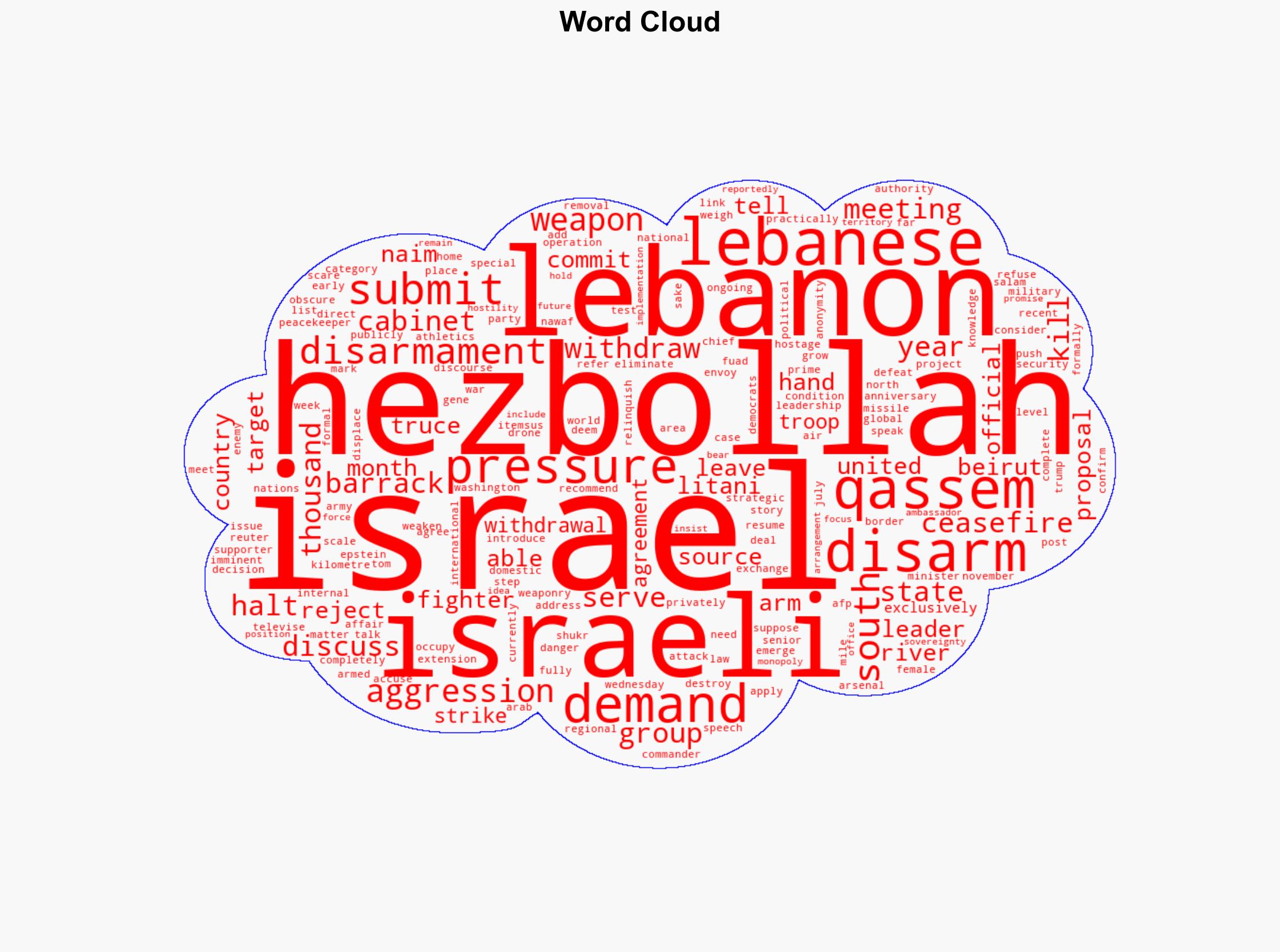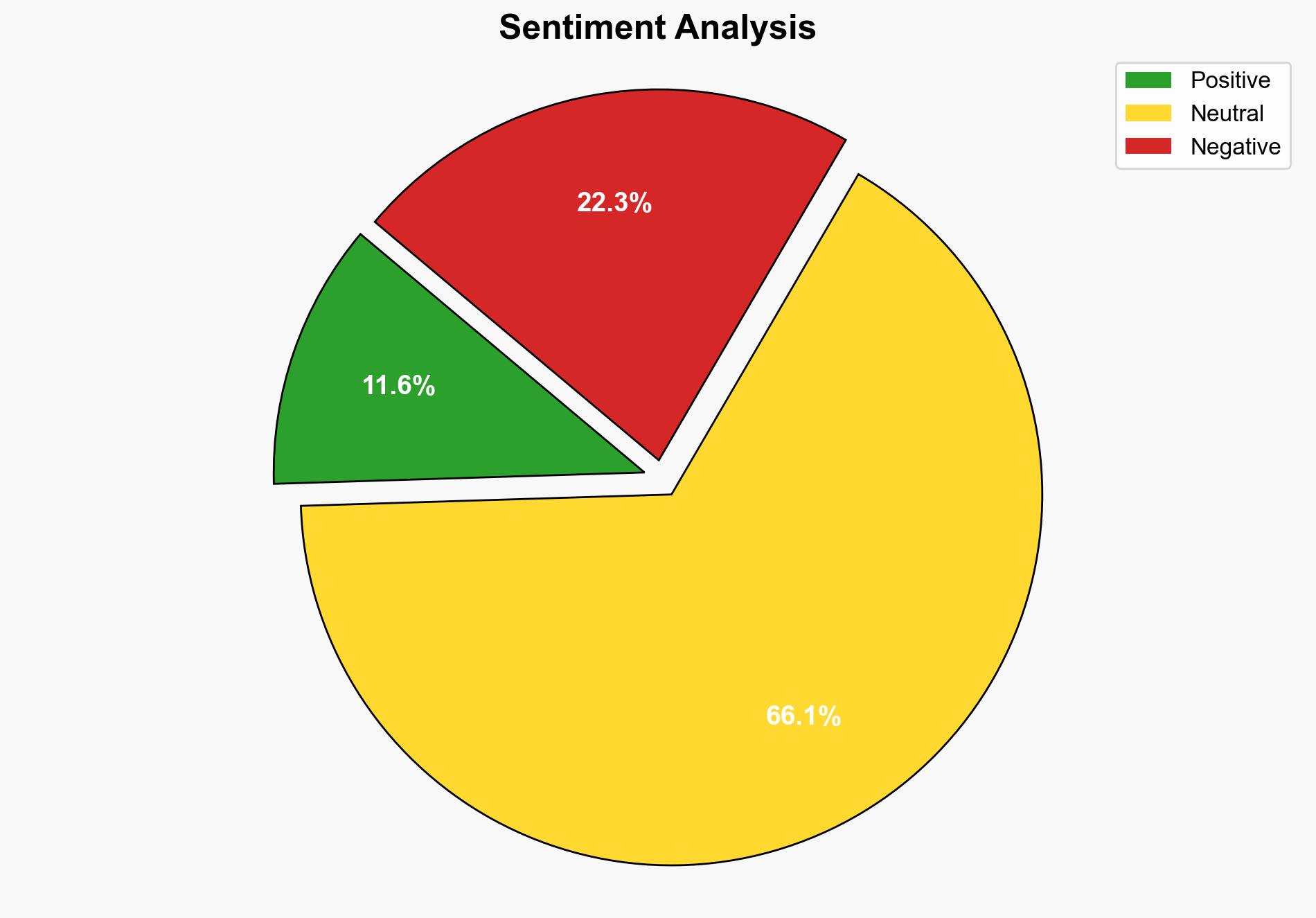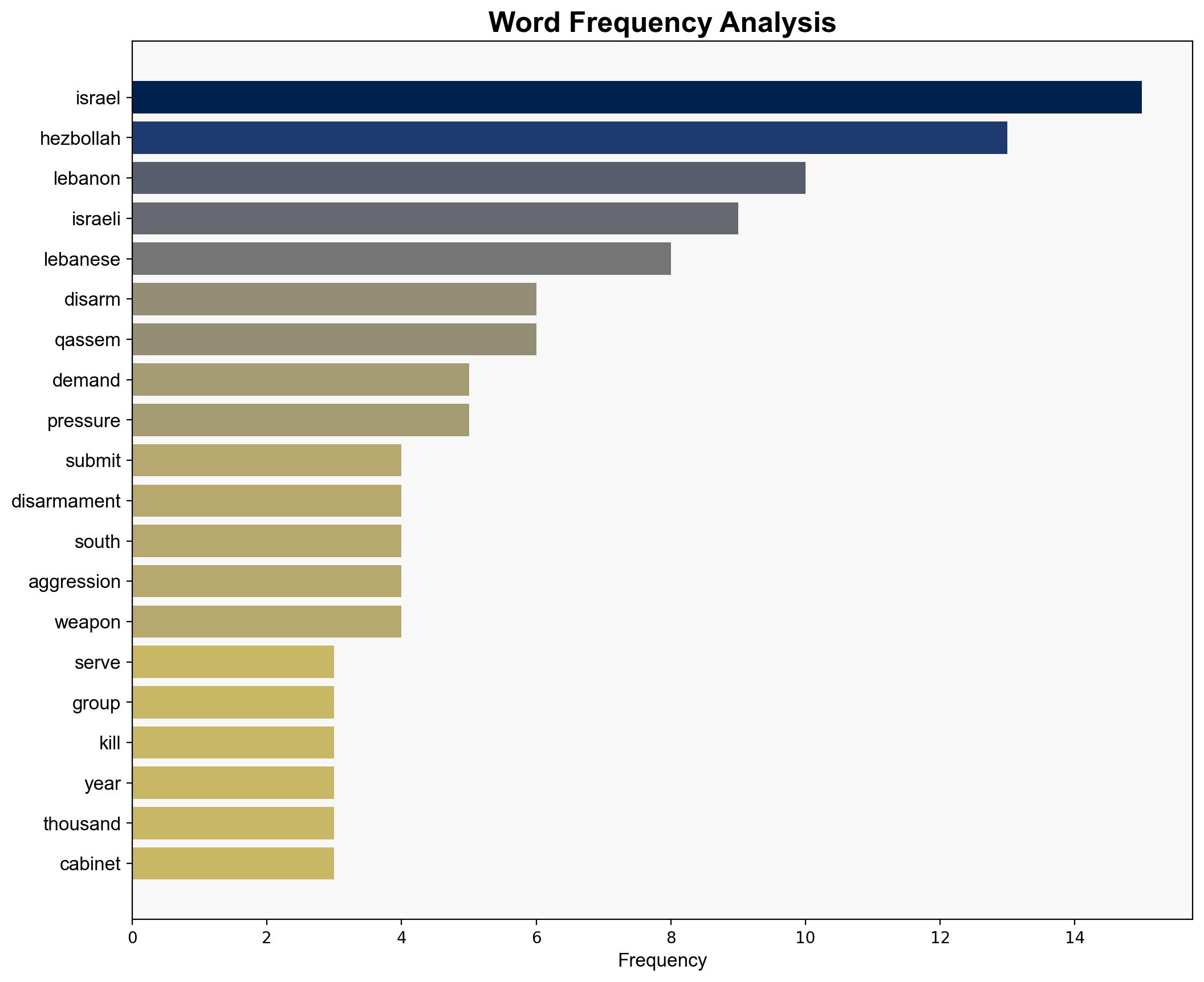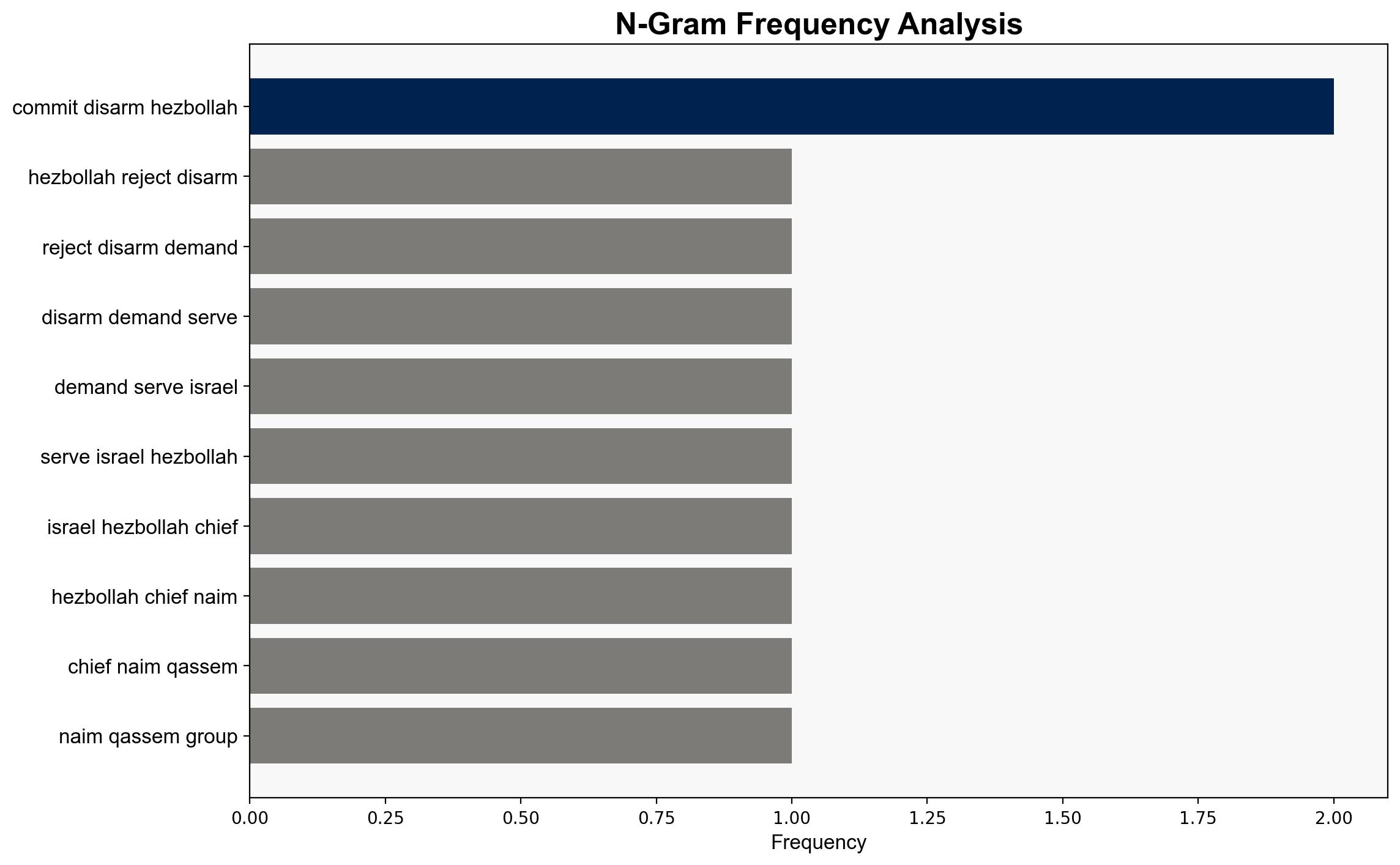Hezbollah rejects calls to disarm says demands serve Israel – Al Jazeera English
Published on: 2025-07-30
Intelligence Report: Hezbollah rejects calls to disarm says demands serve Israel – Al Jazeera English
1. BLUF (Bottom Line Up Front)
The most supported hypothesis is that Hezbollah’s refusal to disarm is primarily driven by strategic considerations to maintain its influence and deterrence capabilities against Israel. Confidence level: Moderate. Recommended action: Engage in diplomatic efforts to mediate between Lebanese authorities and Hezbollah to address security concerns while ensuring regional stability.
2. Competing Hypotheses
1. **Hezbollah’s Refusal to Disarm is Strategically Motivated**: Hezbollah aims to retain its military capabilities to deter Israeli aggression and maintain its influence in Lebanon and the broader region. This hypothesis is supported by Hezbollah’s historical context of conflict with Israel and its strategic positioning within Lebanon’s political landscape.
2. **Hezbollah’s Refusal to Disarm is a Tactical Response to External Pressures**: Hezbollah’s stance is a reaction to international and regional pressures, particularly from the United States and Israel, to weaken its military strength. This hypothesis considers the geopolitical dynamics and pressures exerted by external actors on Lebanon.
3. Key Assumptions and Red Flags
– **Assumptions**:
– Hezbollah perceives a genuine threat from Israel that necessitates maintaining its arsenal.
– External pressures are significant enough to influence Hezbollah’s public statements and actions.
– **Red Flags**:
– Potential bias in the source’s portrayal of Hezbollah’s motivations.
– Lack of direct evidence linking Hezbollah’s military actions to immediate threats from Israel.
– Inconsistent reports on the scale of internal Lebanese support for disarmament.
4. Implications and Strategic Risks
– **Regional Stability**: Continued refusal to disarm may escalate tensions with Israel, risking military confrontations.
– **Internal Lebanese Politics**: Hezbollah’s stance could polarize Lebanese politics, affecting government stability and international relations.
– **Geopolitical Dynamics**: The situation may influence broader Middle Eastern alliances and U.S. foreign policy in the region.
5. Recommendations and Outlook
- **Diplomatic Engagement**: Facilitate dialogue between Lebanese authorities and Hezbollah to address security concerns and explore potential compromises.
- **Scenario-Based Projections**:
– **Best Case**: Successful mediation leads to a phased disarmament plan, enhancing regional stability.
– **Worst Case**: Escalation of hostilities between Hezbollah and Israel, destabilizing Lebanon and the region.
– **Most Likely**: Continued stalemate with periodic diplomatic efforts and minor skirmishes.
6. Key Individuals and Entities
– Naim Qassem
– Fuad Shukr
– Nawaf Salam
– Tom Barrack
7. Thematic Tags
national security threats, regional focus, geopolitical dynamics, military strategy




